- Rule, Britannia, no more?
- Unpopular Opinions: US Quadball Cup 2023
- Proven Contenders: University of Virginia
- Proven Contenders: Rutgers University
- Proven Contenders: University of Michigan
- Proven Contenders: Creighton University
- Different Perspectives: A Look Inside USA Ultimate
- Antwerp QC, Much of Belgian Core, Leaves Competitive Quidditch
The Eighth Man 2012-2013 Third Team All-Americans
- Updated: June 4, 2013

The Eighth Man’s All-American teams were selected by the site’s staff using a simple ballot system. A first-team vote was worth three, a second-team vote two, and a third-team vote one. Each team contains seven players: two male chasers, one female chaser, one male beater, one female beater, a keeper and a seeker. Today, we present our third team, with our second team and first team to follow in the coming days.
Chasers
Adam Richardson – UCLA
UCLA’s biggest strength has long been their depth: they could roll out line after line of chasers who were almost indistinguishable and with virtually no weaknesses. To have a chaser emerge from that line is very impressive, but Adam Richardson has established himself as the best over the course of the season.
Richardson is, simply put, an all-around player. He scored or assisted on half of UCLA’s goals in their impressive win over the Lost Boys in the finals, including the game’s signature play, in which he drove Lost Boys’ keeper Tony Rodriguez back five yards on a tackle before ultimately stripping the ball, recovering it, and dunking. Richardson plays as an extremely capable point chaser, able to wrap up and bring down most players who attempt to go by him. On offense, he showcases good speed to go with a lot of power, and he can shoot accurately from anywhere within the half-court line. On a team full of players who do their jobs, no matter what’s asked, Richardson is a player who does every job spectacularly.
Alex Makk – Arizona State University
Players who are defined by their impressive speed often suffer in the power department. Alex Makk is not one of these players. Despite possessing one of the fastest brooms up times in the sport, Makk backs up his speed with impressive power, occasionally generating enough to truck some of the largest and strongest players in the sport. In addition, Makk possesses an extremely accurate and quick shot, honed from his days playing water polo. He alternates between keeper and chaser, and despite being undersized, his lightning-fast hands made him a force at the former for Arizona State. On offense, he was nearly impossible to beat, as he’d inevitably run past or jump over any bludger that came his way. Arizona State may have been eliminated in the Round of 32, but Alex left an indelible impression on the quidditch world in Kissimmee.
Becca DuPont – Texas A&M
There are few people in the quidditch world that are as motivated as Becca DuPont, who has already received quite a bit of recognition this season for her efforts and talents. She plays with an amazing passion, and her never-quit attitude showed right through to the final minutes of her team’s season ending loss to Texas in the World Cup quarterfinals, in which she scored one of the Aggies four goals. At the tournament, her tackling form was on point, and she made some vital stops that helped keep momentum on A&M’s side all the way to the competition’s later rounds. Along with her strong offense, her ability to read situations and make deadly cuts has been vital to her team’s offensive success throughout the season.
Beaters
Alex Leitch – Hofstra University
Alex Leitch’s contributions to Hofstra can most easily be summarized by the team they were with and without him this season. With him on the pitch for nearly every minute of every game, the Dutchmen fell just short against Emerson in the Northeast Regional semifinals, reached the finals of the Shell-Shocking Spectacular and played level with Maryland, and earned the No. 5 overall seed going into bracket play at World Cup VI. Without him, they lost to Maryland by 120 points, needed a snitch grab to survive New York University, and were bounced from the World Cup early in the Round of 32.
Leitch, who picked up two yellow cards in that World Cup match, is no stranger to fouls, accruing many of them with his aggressive style. With a bludger in hand, he’ll push far up the field, even with bludger control, looking for ways to wreak havoc in the opponent’s defensive set. Without one, he is constantly looking for an opportunity to land a jaw-dropping hit on an opposing beater to force them to the ground and steal their ball. While the pajama pants that became his trademark in the cold winter months suggest a cuddly player, he is anything but, and his aggression, along with his powerful arm, make it no surprise that Hofstra leans so heavily on him.
Hope Machala – University of Texas
In the fall, University of Texas’ roster was riddled with injuries, with one of the most prominent being Lauren Carter their starting female beater. With Carter out due to a stress fracture, Hope Machala had to step up and take over the reins of the aggressive Texas beating lines, alongside Colin Capello. Machala played with relatively no sub for all of the fall season and improved rapidly, fitting into the high octane Texas defense almost seamlessly. She plays a fast-paced game with little hesitation that usually results in very accurate beats that are both effective and help her to retain bludger control. Machala has a very strong field presence, and was a vital cog in the bludger control dominance that helped carry the Longhorns through the bracket round of World Cup VI.
Keeper
Zach Luce – UCLA
Nobody exemplifies the leap UCLA took from quarterfinalist to World Cup runner up more than Zach Luce. When USC defeated UCLA by ten points in the third Western Cup, Luce was a chaser who didn’t stand out from UCLA’s impressive array of chasers. At the same time, UCLA was being held back by a problem unique to them: they were too unselfish. Several times in that tournament, they would pass up an easy scoring change to pass the ball to an open player. For the first time in quidditch history, a team needed to figure out how to be more selfish.
Luce moved back to play keeper for UCLA, announcing himself to Southern California by dropping ten goals on the Lost Boys late last season. From the moment this season kicked off, Luce was one of the keys to UCLA’s success. His lanky frame allows him to cover goals defensively and cut down passing lanes, yet he is a strong enough tackler to stop chasers at the hoops and bring them to the ground as well. On offense, Luce became the just-selfish-enough player that UCLA needed against some teams, with his great driving forcing teams to cover him with both chasers and beaters, often unsuccessfully. At the same time, he still could still provide the great passing that UCLA is known for after drawing in the defense. Through his evolution, Luce helped make an already dangerous UCLA team almost unstoppable.
Seeker
Both seekers received equal votes, with each being favored by half of our voters, so they will both be recognized
Harry Greenhouse – University of Maryland
Between his strength, speed and endurance, Harry Greenhouse has all the tools necessary to make life miserable for a snitch. He is an incredibly aggressive seeker who will drive right into a snitch. Thanks to an extensive wrestling background, Greenhouse is very good at grappling and getting excellent extension on his attempts.
On top of his physical abilities, Greenhouse never ever slows down. If you throw him down, he’ll be back up and on you in a fraction of a second. More than any other seeker in the country, he will pull a snitch if allowed any lengthy 1-on-1 time with the snitch every single time. Greenhouse also does an excellent job adjusting to different snitches styles, and has the patience to wait until he has an opening to take a shot, unlike many seekers who attack without having an actual setup. Harry has the endurance to play an entire game as a chaser and then come out as the seeker and relentlessly attack the snitch, which has been invaluable for Maryland, which benefited most prominently from his game-deciding snatch in the Shell Shocking Spectacular finals.
Steve DiCarlo – Lost Boys Quidditch Club
The Lost Boys set a new standard this season for what community teams are capable of, making it all the way to the Elite Eight of World Cup VI, and one of the keys to their breakout season was the ability to hand over any game within snitch range to Steve DiCarlo. While he had some big grabs at World Cup, DiCarlo has actually been coming through in the clutch all season long. His overtime grab against the Silicon Valley Skrewts in the semifinals of the Western Regionals sent the Lost Boys to the finals, and he also won the MVP award of the Snow Cup back in January.
What makes DiCarlo such a clutch seeker is a unique combination of brains, agility, tenacity and a willingness to sacrifice his body. DiCarlo analyzes the snitch and opposing seeker with an impressive degree of ease. He also has terrific closing speed and perhaps the surest grip of any seeker in the sport. If he can touch the snitch sock at all, he’s pretty much guaranteed to pull it. He also sacrifices his body like no one else, and a large amount of his grabs come while he is being flipped, thrown, slammed, or grabbed. His team puts a lot of trust in him, and in return DiCarlo gives them everything he’s got.
2012-2013 Third-Team All-Americans
C Adam Richardson – UCLA
C Alex Makk – Arizona State University
C Becca DuPont – Texas A&M
B Alex Leitch – Hofstra University
B Hope Machala – University of Texas
K Zach Luce – UCLA
S Harry Greenhouse – University of Maryland
S Steve DiCarlo – Lost Boys Quidditch Club

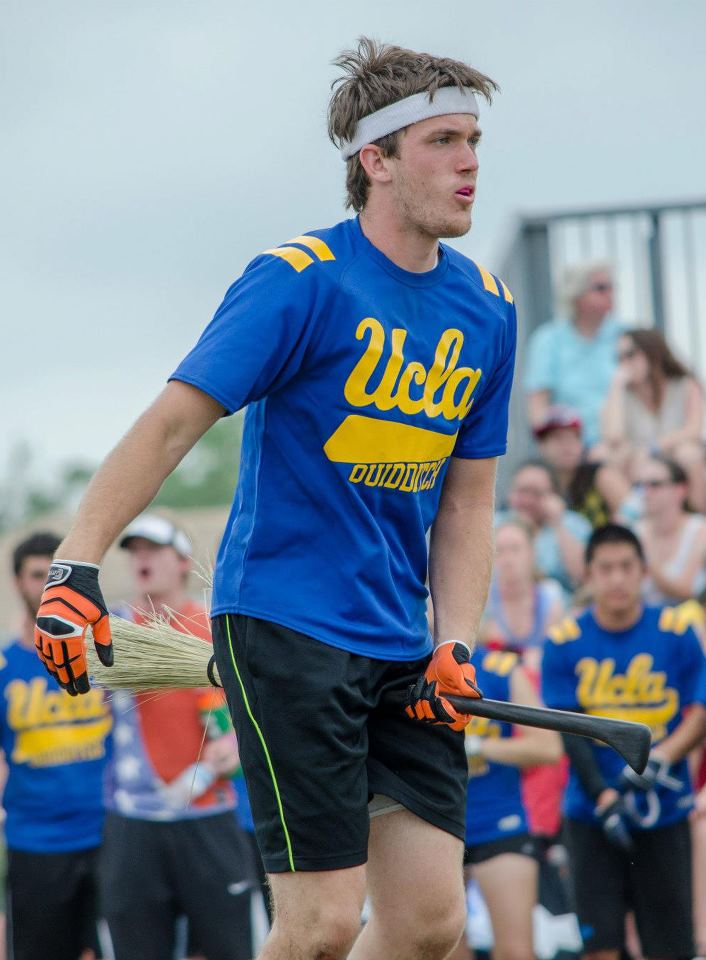
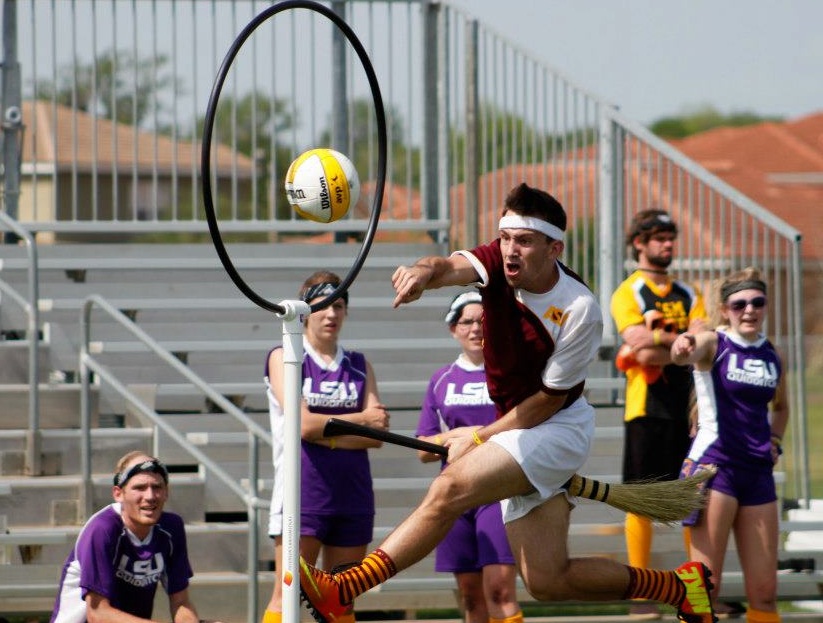
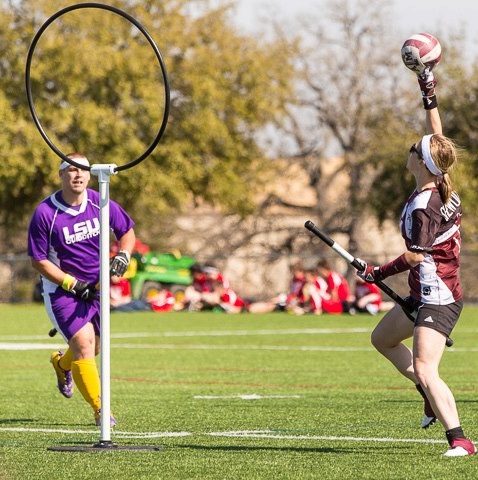
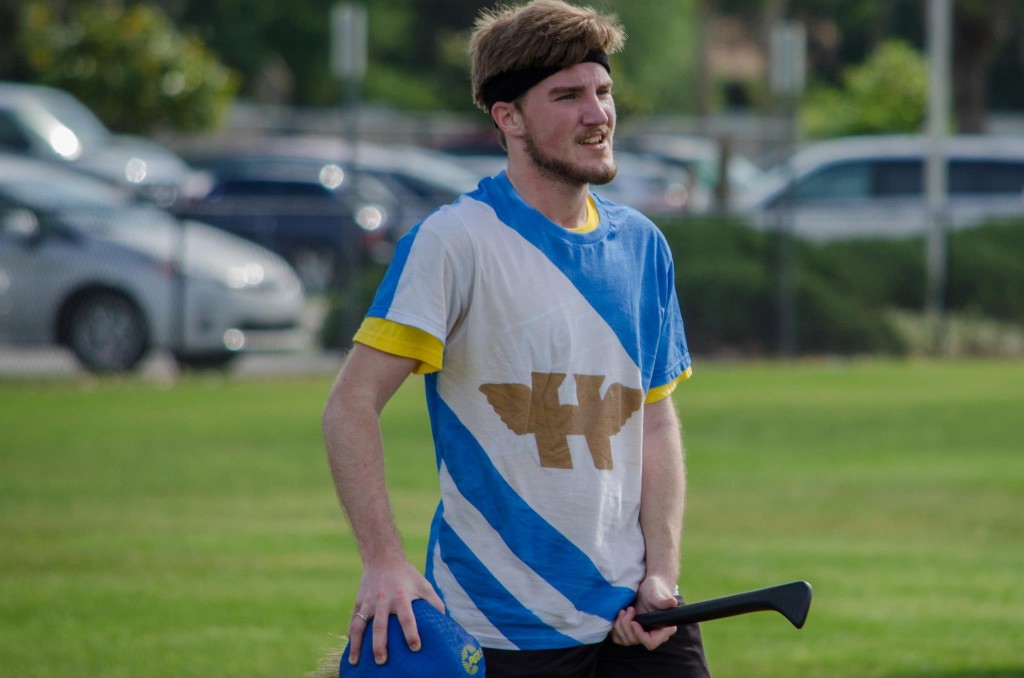
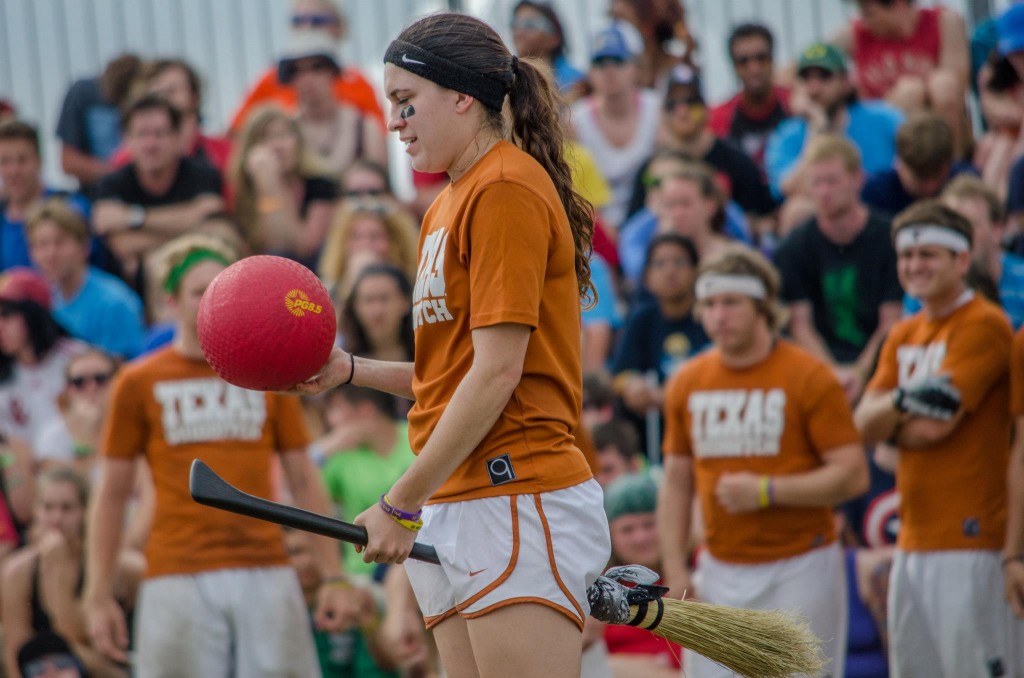
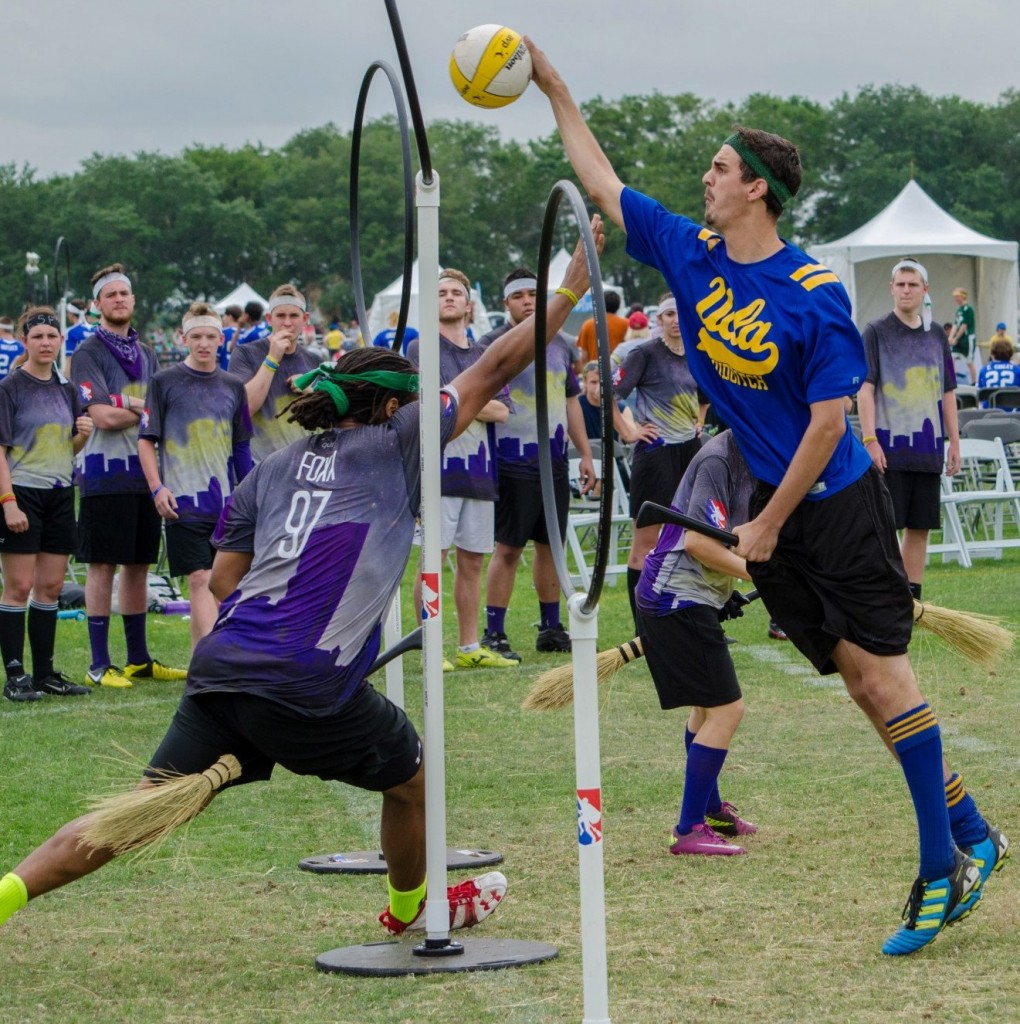
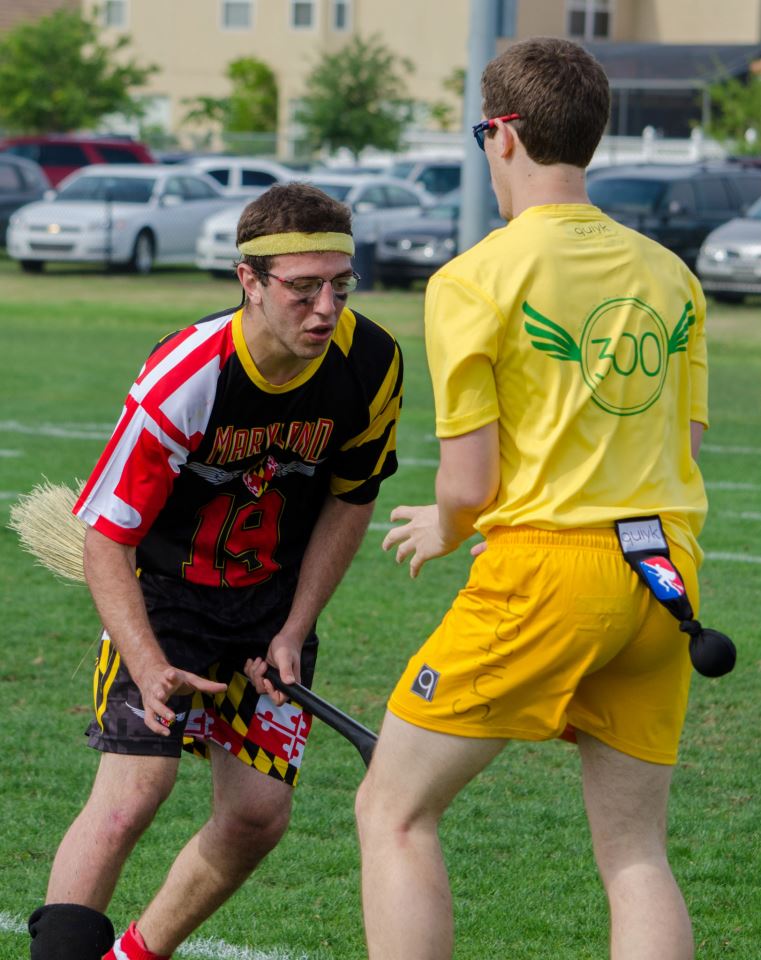
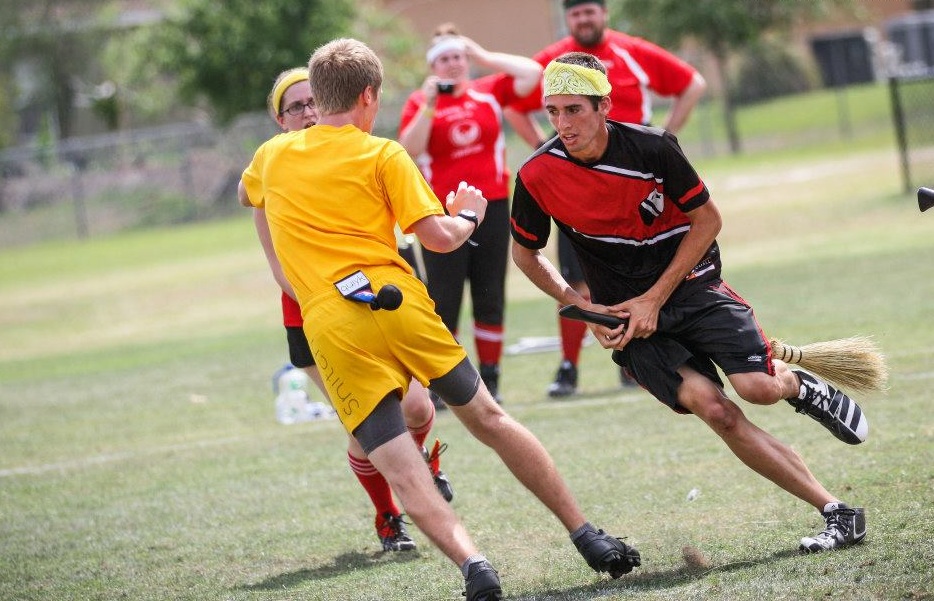
Pingback: The Eighth Man 2012-2013 Second Team All-Americans - The Eighth Man